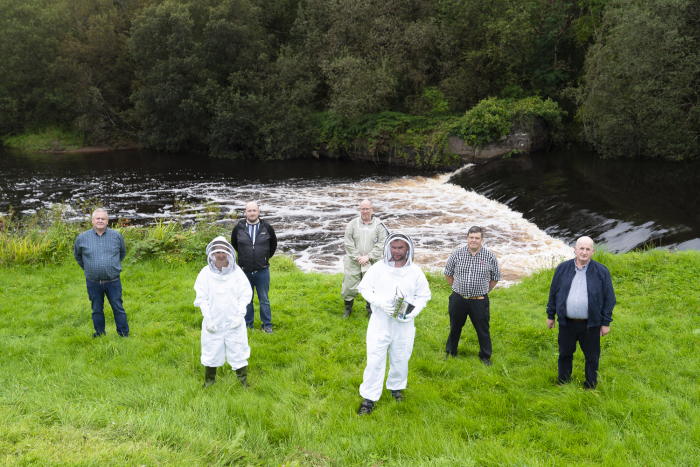
Clare communities encouraged to follow the example of rural village which stamped out pesticides in water supply
3 October, 2023: There isn’t a community in the country that can’t learn from the success of a West of Ireland village when it comes to reducing the impact of pesticide use on drinking water sources.
For years pesticide exceedances were an issue for Newport’s water supply in Co Mayo, but a targeted team approach has seen the supply removed from the EPA’s list of vulnerable water supplies.
Uisce Éireann is encouraging the public to follow suit and consider the environment and alternatives to pesticides when gardening, farming and maintaining sports grounds and in turn improve the quality of local drinking water for homes and businesses. Even a tear drop of pesticides can pollute a long stretch of a river.
While there has been significant progress nationally in recent years in reducing the impact of pesticide use on drinking water sources, Uisce Éireann’s compliance expert Thomas Gibbons and Teagasc’s Mary Roache explained that the lessons learned in Newport apply to supplies right across the country.
They worked with representatives from the Local Authority Waters Programme, Mayo County Council, The Department of Agriculture Food and Marine, National Federation of Group Water Schemes and Animal and Plant Health Association.
“There were 48 pesticide exceedances in public drinking water supplies in Ireland in 2022 and these were detected as part of Uisce Éireann’s public water supply monitoring programme from a total of more than 35,000 samples. We all need to consider the vulnerability of our local drinking water supplies to pesticide contamination and the importance of these supplies to our homes and businesses. Continued vigilance is necessary,” said Thomas Gibbons.
In Newport the entire community in Newport worked together to put a stop to pesticide exceedances. Some locals looked after bees at the water treatment plant to raise awareness of the importance of keeping our water sources safe, school children planted trees, and a number of agencies helped spread awareness about pesticide use.
Uisce Éireann and the National Pesticides and Drinking Water Action Group (NPDWAG) are asking the farming community, greenkeepers, grounds keepers, and also domestic users of pesticides, to consider in each case whether they need to use pesticides at all. Pesticides must only be used where strictly necessary and only after the possibility of using other control methods has been carefully considered. Minimising pesticide use not only helps to protect water quality but also has multiple wider environmental benefits.
“While Uisce Éireann’s consultation with the HSE has concluded that the levels of pesticides being detected in water supplies do not represent a threat to public health, they are still however undesirable in drinking water and it is therefore imperative that users of pesticides are mindful of best practice when using herbicides or pesticides and seek out alternatives,” explained Thomas Gibbons.
Teagasc’s Mary Roache’s said awareness is key to keeping our water supplies safe.
“Some farmers and contractors may not have been aware that a tiny amount of pesticide spray in the water can be easily detected as far as 30km downstream and cause a breach of the limits.
“When I visit farmers the first question I ask is ‘do you need to use pesticide spray at all?’. My job is to make farmers think about what they are doing, why they are doing it and if there is an alternative. The advice given is individual to every farmer and completely confidential. Sometimes a small change in behaviour is all that is required. If they are still set on spraying their land, then I go through current regulations and the best practices with them so they can help protect water quality.
“We’re here to help. Everyone has been in this together; farmers want top quality water too.”
Ends
